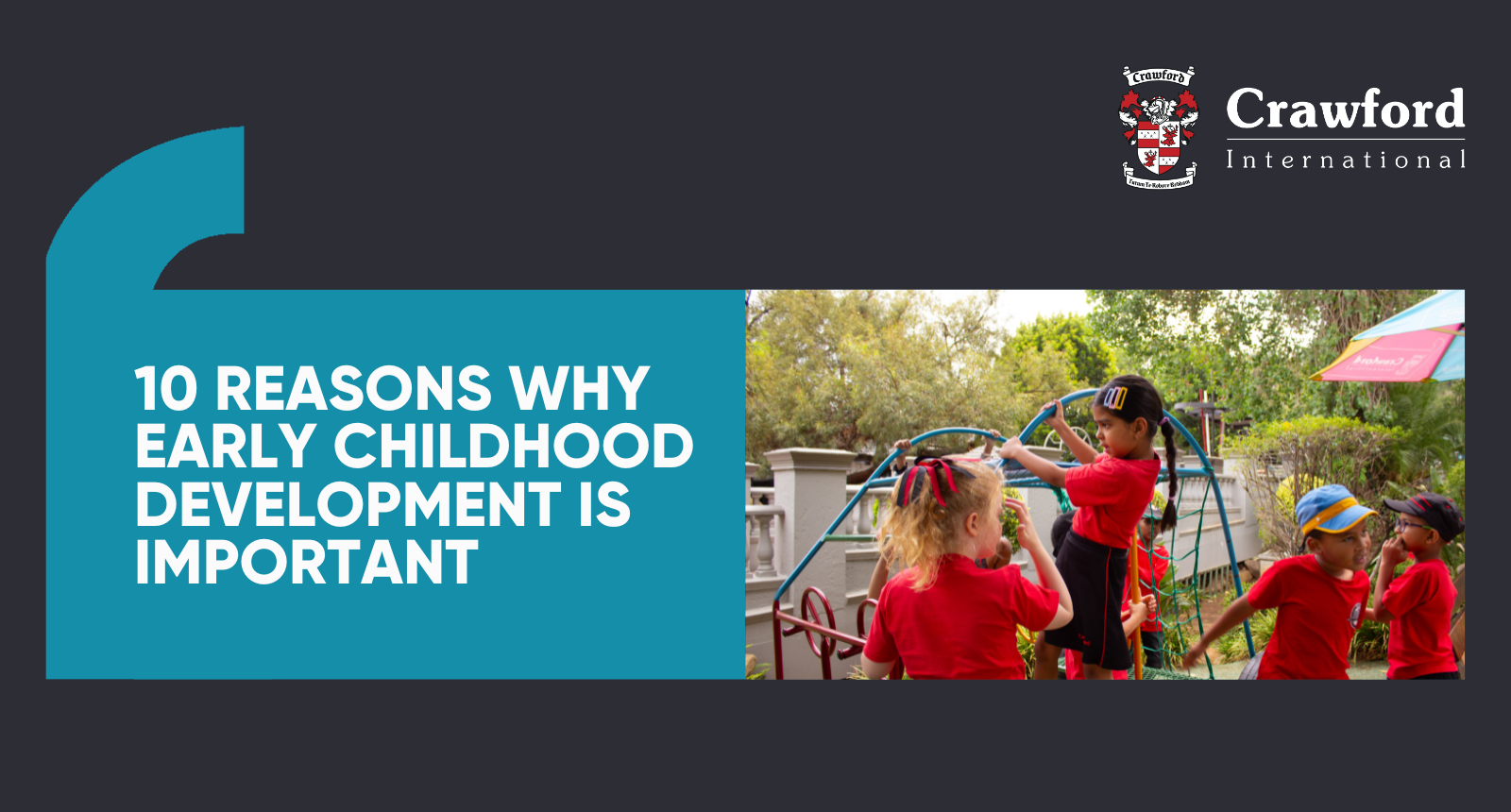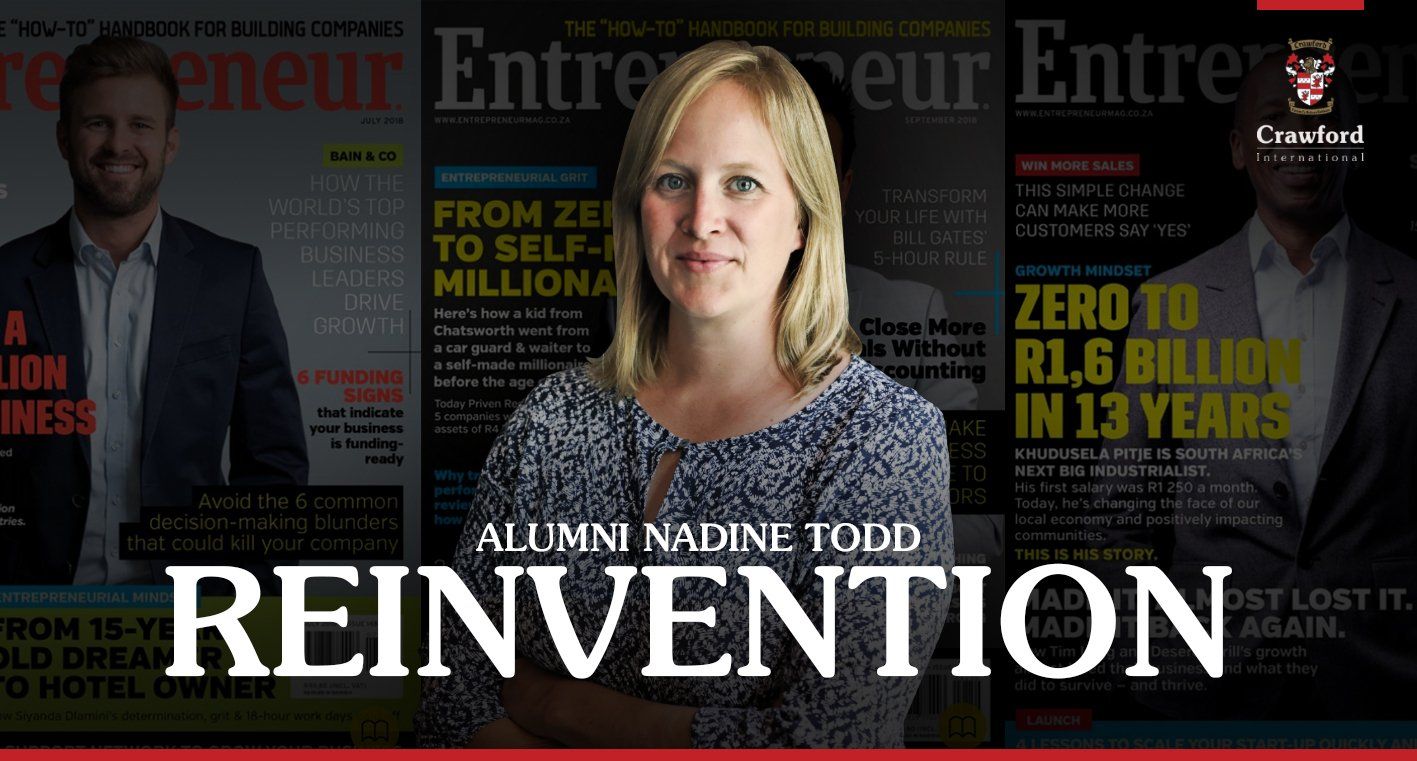


ADvTECH Group • June 8, 2021
By Christelle Wolmarans

Where do you go after you’ve reached the top of your game, and then the game changes unexpectedly? That’s the question facing a generation of editors, as the magazine industry in South Africa continues to shrivel.
For Crawford Alumnus and former Editor-in-Chief of Entrepreneur magazine, Nadine von Moltke-Todd, the massive transformation to the print world brought her to a crossroads when her beloved Entrepreneur magazine closed its doors.
But no collapse of industry could keep Nadine down, and with experience and determination, she reinvented herself even better! Today, Nadine is one of South Africa’s most sought-after business writers, offering expertise and guidance to the entrepreneurs and businesses she once wrote about.
Nadine matriculated from Crawford College Lonehill in 1999, as one of the founding group of matrics and she remembers Crawford College Lonehill with great fondness. “I loved every minute of my matric year! Crawford taught me how to think. Our teachers were passionate, and we felt like we were learning important things that would carry us through life.”
Nadine went on to study a BA at Wits, majoring in English and History and even graduated top of her class for both subjects. “I think the reason I did so well at university was because what was needed was to be able to research, think, analyse and argue, and these were skills I had learnt at Crawford.”
After completing her Masters degree, Nadine entered the work force as copywriter for an audio business that did message-on-hold scripts. “You know those pre-recorded messages you hear when you call an office line, or when you’re trying to get through to a human at Vodacom, Discovery or DStv?” she smiles. “I wrote the scripts.”
Thereafter, she landed a junior writer position at FOCUS on Transport. “To this day, what I learnt at FOCUS still serves me well – supply chains and logistics impact every industry, and many of our biggest industries in South Africa, including retail, FMCG and mining, require heavy transport,” she says with pride. “It gave me great insight into South Africa’s economic realities.”
Nadine joined the award-winning South African Entrepreneur Magazine as an assistant editor in 2019 and soon worked her way up to Editor-in-Chief. “Entrepreneur magazine was a magazine for anyone who was thinking about starting a business or who was already crushing it and planning their next big move.” Nadine interviewed more than 400 entrepreneurs, senior executives, investors and subject matter experts over the course of a decade.
She had the privilege to engage with many amazing people, but the two people who really inspired her were Karidas Tshintsholo and Matthew Piper, who at ages 23 and 24 respectively won the MTN Business App of the Year award for https://www.khula.co.za/, an app that is changing the face of subsistence farming in South Africa. “They aren’t there yet – they are a start-up – but I really believe that in a decade or two, they’ll be as well-known as Ivan Epstein or Adrian Gore. They’re problem solvers. They also have a great start-up story.”
For youngsters that are passionate storytellers and writers, Nadine’s main piece of advice is: Learn how to research! “This is the biggest gap I see at the moment. Writing can only ever be as good as your general knowledge, how easily you can find great reference material, and your general comprehension skills. If you don’t have these three things, you can write beautifully, but you won’t have anything to say.”
Nadine’s expertise in curating insightful and unique business content and distilling it into actionable insights that business readers can implement in their own organisations is the basis of her new freelance business. “Home is where the heart is, and for the digital nomad, work is wherever the Wi-Fi is.”
Nadine currently works remotely with a number of large South African businesses on their internal and external communications. “I look to work with people who share my values, who care deeply about people, and who want to only produce the best work possible. I find those people very inspiring.”
In March 2020, Nadine packed her bags and moved out of the city to the Waterberg with her family: Marc Todd (husband) and beautiful children Luc (7 years) and Isabella (5 years). “They may drive us crazy at times, but there’s no doubt that my family plays an integral role in shaping my life. They are my everything and there’s nothing better than spending time with those you love,” she says.
While Nadine is enjoying the great outdoors, she is also enjoying great success and has become one of South Africa’s most sought-after business writers! Why? Because challenge and change can never keep a good ~Crawford Alumnus down!


